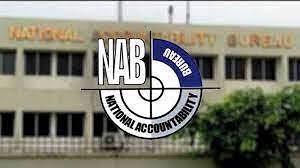Zia ur Rahman Tajik
Corruption is the abuse of entrusted power for private gain, it also means dishonest conduct by those in power, typically involving bribery. corruption weakens the economic growth of a country, deters investment, undermines competitiveness, and affects all developments, quality education and healthcare. Increases inequality, decreases popular accountability, and undermines democracy and good governance. Corruption affects political stability and the rule of law.
In corruption, there are no apparent victims but it affects society as a whole. corruption can be stopped by exposing corrupt activities, stopping dishonest practices and strict implementation of laws in their letter and spirit without any favourites and discrimination. Corrupt persons are not properly groomed by their parents and teachers and they can be equally blamed for the corruption of their children and students and role of fathers, mothers and teachers cannot be ignored because well and properly groom children and students would not resort to corruption and corrupt practices and maximum gain and benefit for their interest.
Laws are for justice, for maintaining order, for the protection of rights and liberty, for settlement of disputes, and for redressal of grievances of the wrong dower.
The law promotes justice, and equity and protects individuals from government, organisations and even from individuals. For a citizen, the law is a set of rules which he must obey and for a judge, the law is a guide and principle for making decisions and for a legislator law is something created by him. Without Law survival of human society is not possible, different kinds of problems, situations, issues and crimes are impossible to cover by one law and due to that reason different Laws are promulgated by the parliament.
In 1999 Martial Law was imposed by the then Chiefs of the Army Staff on 14.10. 1999 where after for the eradication of corruption, corrupt practices and making accountable all those persons accused of corruption and matter ancillary thereto, On 16. 11. 1999 National Accountability Ordinance was promulgated with retrospective effect from 1.1.1985 and section 2 of the ordinance is clear on its retrospective effect. The main consideration of the ordinance was to recover the amount and assets misappropriated by the accused being the holder of a public office. Under the said ordinance National Accountability Bureau was established for the eradication of corruption and corrupt practices.
The said Ordinance under Section 4 is made applicable to all persons, citizens of Pakistan and holders of public offices. Even a private person can be prosecuted under the said ordinance when he cannot account for the wealth which is beyond his source and means. The said ordinance u/a 16(a) also provides the expeditious disposal of cases within one month on a day-to-day basis. Under section 9(a) different kinds of corruption have been mentioned and explained with further restrictions that the accused shall not be released on bail u/s9(b).
The courts were further authorised to keep the accused in custody for a period of not exceeding 90 days and not exceeding 14 days at a time with the sole object is to recover the misappropriated amount and assets misappropriated by the accused persons.
National Accountability Ordinance created awareness in the society against corruption and conferred extraordinary power on the NAB to eradicate corruption from society. NAB is further made responsible for prosecuting cases of corruption and financial crime in the country by following due process along with the right to a fair trial. NAB was established as a prime anti-corruption and preventive agency against white colour crime and criminals, corrupt elements, bribery, illegal gratification and gain.
In 2022 and 2023 National Accountability Ordinance was amended several times by the previous Government and rendered the NAB into a toothless organization and made it an amnesty scheme. The said amendments further empower the chairman of NAB to transfer graft cases involving corruption of less than 500 million to the relevant agency, department or authority and also close the pending enquiry and investigation where he thinks no case is made out. The said amendment affected pending cases, investigations and enquiries and has ended up, benefiting over 80% of cases including high-profile cases.
The amendment paves the way for public office holders to remain unpunished for white colour crimes. The applicability of the said ordinance has been restricted to graft cases involving more than 50 million and Section 5 ensures that only offences of 500 million or more are to be prosecuted by the NAB. The said amendment has further provided a clean chit to those accused who are involved in corruption cases where the amount is less than 500 million. Because the trial of such accused in another court would not be that much effective due to much-complicated reasons.
Under the new amendment applicability of Section 4 has been curtailed and Limited and has also curtailed the power and jurisdiction of the National Accountability Bureau and the Accountability Courts. The said amendments also legalise the property owned by a person through corrupt practices in the name of his spouse, relative or Associates because the assets u/a 5(1) have been confined to all kinds of properties owned by an accused person or hold as benamidar.
The power of appointment of chairman is delegated to the Federal government by amending Section 5(F) and Section 6 of the ordinance. The appointment process has been made more complicated time-consuming and politicised. The chairman of NAB can be removed through Supreme Judicial Council hence his appointment may also be made through the judicial commission of Pakistan because members of the judicial commission of Pakistan are impartial persons and appointment through the commission, would be based on competency, impartiality, honesty and non-political basis. An impartial, honest and non-political person as chairman of NAB can play an effective role in the eradication of corruption by applying the provision of the Ordinance to all the accused persons without any discrimination, dictation, directions and its true letters and spirit.
Through the said amendment S-9(7) has been omitted and under the said omitted section any direction, policy or SRO or action for undue concession in tax matters or other laws for himself, relative or associate has been made punishable. Now due to the Said amendment under the garb of any policy, SRO or direction benefit in taxation and other laws can be given to the near and dear ones by the public office holders and politicians.
Under the new amendments, Civil and commercial disputes, and investment schemes between private parties are placed outside the domain of the NAB. In the said amendment U/S 9(b )the trial court is empowered with jurisdiction to grant bail to the accused person, said amendments had also provided benefit under section 382- B of Cr. P.C . Such benefit is usually not available to those accused persons who are involved in high treason, Narcotics, Terrorism and corruption cases.
The period of 30 days for the decision of cases u/s 16(a) has been extended to a period of 1 year and now the trial will be concluded within the said period, which is against the principle of expeditions justice. (Justice delayed is justice denied). Section 23 has also been omitted from the said ordinance and under the said omitted section transfer of property by the accused to a third person was prohibited during pregnancy of trial and investigation and now the accused is at liberty to transfer his property during the investigation and trial. Under section 26(a) now an accomplice shall be disqualified from the date of termination of trial for 10 years from contesting election, appointment, or representation in a public or government sector. But before the Said amendment, there was no restriction and disqualification on an accomplice. The period of appeal from a judgement of the Accountability Court has been extended from 10 days to 30 days by amending Section 32 of the ordinance as well as the Appellate Court is further empowered to suspend the sentence of the accused person during pregnancy of the appeal.
For eradication of corruption from the roots level we need a strong system of checks and balances and strict implementation of the laws. We as a nation are also required to pinpoint the corruption of everyone irrespective of his status and position in society. No one owns Pakistan, everyone is working for getting the maximum benefits for himself at the cost of public interest. Even one scrupulous honest person on the top brings a lot of change in his depth, organisation or authority.
ln small provinces like Khyber Pakhtunkhwa there would hardly be a project of 500 million and thus the people of such provinces would be affected by corruption due to a deficiency of an effective accountability system to monitor the corruption. The corrupt people would be at liberty to gain maximum benefits for themselves through corrupt practices. The small cases of corruption would go unchecked.
The writer is an advocate of Supreme Court. (LLM Constitutional Law) based in Peshawar and can be on ziaurrahmantajik123@gmail.com.







